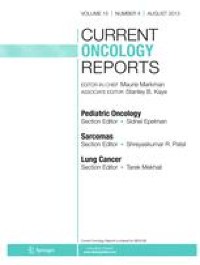|
Σφακιανάκης Αλέξανδρος
ΩτοΡινοΛαρυγγολόγος
Αναπαύσεως 5 Άγιος Νικόλαος
Κρήτη 72100
00302841026182
00306932607174
alsfakia@gmail.com
Αρχειοθήκη ιστολογίου
-
►
2023
(391)
- ► Φεβρουαρίου (200)
- ► Ιανουαρίου (191)
-
►
2022
(2843)
- ► Δεκεμβρίου (161)
- ► Σεπτεμβρίου (219)
- ► Φεβρουαρίου (264)
- ► Ιανουαρίου (280)
-
▼
2021
(5625)
- ► Δεκεμβρίου (231)
- ► Σεπτεμβρίου (345)
- ► Φεβρουαρίου (620)
-
▼
Ιανουαρίου
(568)
-
▼
Ιαν 18
(33)
- Identifying and Meeting the Needs of Adolescents a...
- Therapeutic vaccination targeting CD40 and TLR3 co...
- Local control and patterns of failure for “Radiore...
- Coronavirus Disease (COVID-19) and Peritoneal Mali...
- Time to Revisit a Low-Cost Alternative? Palpation ...
- Sentinel Lymph Node Biopsy in Early Breast Cancer ...
- Recent Advances in the Management of Penile Cancer...
- Characterization and comparison of innate and adap...
- Anti-cancer strategies targeting the autotaxin-lys...
- Understanding Existential Anxiety and the Soothing...
- Neurotoxicities associated with immune checkpoint ...
- Dopamine improves chemotherapeutic efficacy for pa...
- The inflammatory kinase IKKα phosphorylates and st...
- Intercellular transfer of exosomal wild type EGFR ...
- Neoadjuvant and adjuvant treatment approaches for ...
- Immunotherapy and chimeric antigen receptor T-cell...
- Preoperative predictors of dysphagia after transor...
- The role of m 6 A, m 5 C and Ψ RNA modifications i...
- Tumor-draining lymph nodes are survival niches tha...
- Cosmetic outcomes of a phase I dose escalation stu...
- “SQiD, the Single Question in Delirium; can a sing...
- CAR19/22 T cell therapy in adult refractory Burkit...
- Integrated analysis of mRNA and miRNA profiles rev...
- New maintenance option for AML
- Clinical significance of skeletal muscle density a...
- Racial/ethnic differences in average CA125 and CA1...
- Cytoreductive surgery plus hyperthermic intraperit...
- HIPEC for colorectal peritoneal metastases
- Broadening treatment options for patients with non...
- First-line nivolumab plus ipilimumab combined with...
- Longitudinal study of intravenous versus subcutane...
- To betray or to fight? The dual identity of the mi...
- Correlations between serum cetuximab and EGFR-rela...
-
▼
Ιαν 18
(33)
-
►
2020
(2065)
- ► Δεκεμβρίου (535)
- ► Σεπτεμβρίου (222)
- ► Φεβρουαρίου (28)
-
►
2019
(9608)
- ► Δεκεμβρίου (19)
- ► Σεπτεμβρίου (54)
- ► Φεβρουαρίου (3791)
- ► Ιανουαρίου (3737)
-
►
2018
(69720)
- ► Δεκεμβρίου (3507)
- ► Σεπτεμβρίου (3851)
- ► Φεβρουαρίου (8116)
- ► Ιανουαρίου (7758)
-
►
2017
(111579)
- ► Δεκεμβρίου (7718)
- ► Σεπτεμβρίου (7549)
- ► Φεβρουαρίου (10753)
- ► Ιανουαρίου (10529)
-
►
2016
(16402)
- ► Δεκεμβρίου (7478)
- ► Φεβρουαρίου (900)
- ► Ιανουαρίου (1250)
! # Ola via Alexandros G.Sfakianakis on Inoreader
Η λίστα ιστολογίων μου
Δευτέρα 18 Ιανουαρίου 2021
Identifying and Meeting the Needs of Adolescents and Young Adults with Cancer
Εγγραφή σε:
Σχόλια ανάρτησης (Atom)
Αρχειοθήκη ιστολογίου
-
►
2023
(391)
- ► Φεβρουαρίου (200)
- ► Ιανουαρίου (191)
-
►
2022
(2843)
- ► Δεκεμβρίου (161)
- ► Σεπτεμβρίου (219)
- ► Φεβρουαρίου (264)
- ► Ιανουαρίου (280)
-
▼
2021
(5625)
- ► Δεκεμβρίου (231)
- ► Σεπτεμβρίου (345)
- ► Φεβρουαρίου (620)
-
▼
Ιανουαρίου
(568)
-
▼
Ιαν 18
(33)
- Identifying and Meeting the Needs of Adolescents a...
- Therapeutic vaccination targeting CD40 and TLR3 co...
- Local control and patterns of failure for “Radiore...
- Coronavirus Disease (COVID-19) and Peritoneal Mali...
- Time to Revisit a Low-Cost Alternative? Palpation ...
- Sentinel Lymph Node Biopsy in Early Breast Cancer ...
- Recent Advances in the Management of Penile Cancer...
- Characterization and comparison of innate and adap...
- Anti-cancer strategies targeting the autotaxin-lys...
- Understanding Existential Anxiety and the Soothing...
- Neurotoxicities associated with immune checkpoint ...
- Dopamine improves chemotherapeutic efficacy for pa...
- The inflammatory kinase IKKα phosphorylates and st...
- Intercellular transfer of exosomal wild type EGFR ...
- Neoadjuvant and adjuvant treatment approaches for ...
- Immunotherapy and chimeric antigen receptor T-cell...
- Preoperative predictors of dysphagia after transor...
- The role of m 6 A, m 5 C and Ψ RNA modifications i...
- Tumor-draining lymph nodes are survival niches tha...
- Cosmetic outcomes of a phase I dose escalation stu...
- “SQiD, the Single Question in Delirium; can a sing...
- CAR19/22 T cell therapy in adult refractory Burkit...
- Integrated analysis of mRNA and miRNA profiles rev...
- New maintenance option for AML
- Clinical significance of skeletal muscle density a...
- Racial/ethnic differences in average CA125 and CA1...
- Cytoreductive surgery plus hyperthermic intraperit...
- HIPEC for colorectal peritoneal metastases
- Broadening treatment options for patients with non...
- First-line nivolumab plus ipilimumab combined with...
- Longitudinal study of intravenous versus subcutane...
- To betray or to fight? The dual identity of the mi...
- Correlations between serum cetuximab and EGFR-rela...
-
▼
Ιαν 18
(33)
-
►
2020
(2065)
- ► Δεκεμβρίου (535)
- ► Σεπτεμβρίου (222)
- ► Φεβρουαρίου (28)
-
►
2019
(9608)
- ► Δεκεμβρίου (19)
- ► Σεπτεμβρίου (54)
- ► Φεβρουαρίου (3791)
- ► Ιανουαρίου (3737)
-
►
2018
(69720)
- ► Δεκεμβρίου (3507)
- ► Σεπτεμβρίου (3851)
- ► Φεβρουαρίου (8116)
- ► Ιανουαρίου (7758)
-
►
2017
(111579)
- ► Δεκεμβρίου (7718)
- ► Σεπτεμβρίου (7549)
- ► Φεβρουαρίου (10753)
- ► Ιανουαρίου (10529)
-
►
2016
(16402)
- ► Δεκεμβρίου (7478)
- ► Φεβρουαρίου (900)
- ► Ιανουαρίου (1250)



Δεν υπάρχουν σχόλια:
Δημοσίευση σχολίου